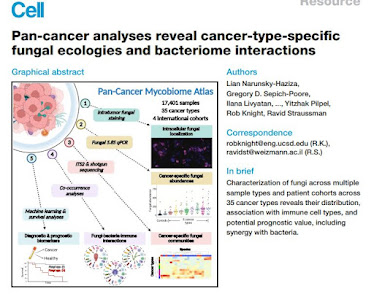The Tragedy of Oncology
Vinay Prasad
Excerpts from https://vinayprasadmdmph.substack.com/p/the-tragedy-of-oncology
The tragedy in oncology is that we have dismantled the system that is meant to tell real innovation from pseudo-innovation. Almost no one understands the problem, even few care about fixing it, and instead most hope to fatten themselves of the riches, while the opportunity exists. Meanwhile, we have entirely lost sight of the goal— the purpose of our task. We have forgotten that this is about helping people sick and dying of cancer live long and live better. That goal is lost.
10 years ago, I believed that, as a younger generation swept through, reform would be inevitable. 10 years later, I see how naive I was. For every young person who understands the problem, there are 9 more salivating at the idea of becoming the next key opinion leader, eagerly going to advisory boards or pharma-sponsored dinners. Every young person who speaks out publicly is advised by colleagues or their boss to stop talking. Some are even told not to (or fearful of) retweeting critical content like mine or Aaron Goodman’s.
.......
Academic leaders. This category contains some massive failures. We have ‘leaders': who are pocketing 10s of thousands from Pharma and defending their (failed) products. What am I to think when the company behind Melflufen hires a leading academic to defend a garbage subgroup analysis at the ODAC? What am I to think when university after university enters into financial arrangements with companies? Pushing back on corporatism is impossible, when you are on the payroll.
Journals and professional societies. Many journals block critical commentary. Many organizations sell out their professional conferences to Pharma. These institutions are now so dependent of Pharma largess that they are powerless to say anything. Only a few voices inside these organizations keep them from toppling into complete advertisements.
Junior faculty. The vast majority are busy running uncontrolled trials that will not help anyone (most uncontrolled trials can’t even answer a useful question). Many have joined ad-boards, etc. Some are studying important topics but have nothing novel to add. An abstract on health disparities that shows… health disparities. Except the solution remains unclear, and the authors think all that is needed are more expensive, mediocre drugs. Cookie cutter projects is another weak spot. If you don’t have a novel idea, it’s ok to think for a while— rather than follow the path of least resistance.
Oncology press. A cottage industry of rag publications cover oncology. They are almost entirely funded by pharma or it’s ads, and they have no critical coverage. Even oncology podcasts are upwardly biased. This is not journalism, but advertisement.
The Industry. The group that I have the least quarrel with is pharma itself. We cannot fault the tiger for being the tiger. Instead, it is the aforementioned entities who have let their guard down. The tiger has a moral obligation to make profit. We were the ones who did not incentivize the right things.
......
How will it end?
Internal reform is not possible. Too many people benefit from the status quo. Reform will come from government regulation— and must come from the USA— that tilts incentives to what matters. I will continue to write, podcast and publish on the flaws of cancer medicine, but going forward, I will spend more time strategizing on political solutions to this problem.
Meanwhile, I won’t forget the goal of oncology: to help people with cancer live as long and as well as possible, using as few drugs as possible, and, pushing for the best evidence to guide those choices. Perhaps we should all have to take that oath.


